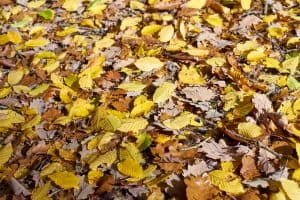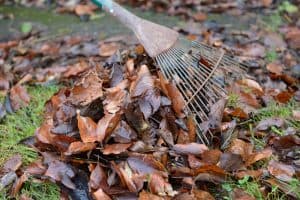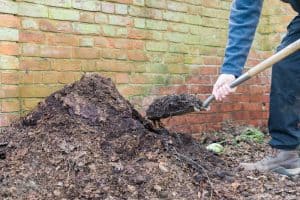How Long Does It Take For Leaves To Decompose
 Fallen leaves can be used in many ways, and the best part of fallen leaves is they are too good for your garden soil. But before you use them in your garden, you need to decay them. Do you know how long does it take for leaves to decompose and how you can do it quickly?
Fallen leaves can be used in many ways, and the best part of fallen leaves is they are too good for your garden soil. But before you use them in your garden, you need to decay them. Do you know how long does it take for leaves to decompose and how you can do it quickly?
Rotten or composted leaves are an excellent source for soil to collect chemical-free nutrients. You can also make them without investing any money as food for the soil. Here in this article, we will discuss how you can compost leaves easily and quickly.
How long does it take for leaves to decompose naturally?
It almost takes 6 to 12 months for leaves to decay naturally. When you leave them in a place like woods or somewhere else, leaves don’t get a good environment for decomposition; they take this amount of time.
You can dispose of leaves in the garbage before the winter. You can also make them soil conditioner in your garden or yard. Disposed leaves work as a rich soil nutrient for your garden.
You need to leave those leaves in a moist environment; if you leave them in a dustbin, then make sure they are getting proper air and sunlight. And this process is better for microorganisms responsible for decomposition. Only then can you use them in your yard as nutrients. Naturally decomposed leaves last longer than decay leaves in other ways.
Can you compost leaves by yourself?
 Yes, you can compost leaves by yourself by following a few simple steps. Here is the way of doing it by yourself:
Yes, you can compost leaves by yourself by following a few simple steps. Here is the way of doing it by yourself:
- First, spread the leaves on the ground, then mow over them. It will help you to break or chop the leaves, making it easier to decompose the leaves.
- Get a square compost bin and pile them up.
- To make the leaves mix and damp, pour water onto them. Now squeeze the leaves to check the amount of moisture. If you can squeeze a few drops of water, it is the proper moist.
- You need to evenly distribute the moisture by turning leaves every 2 to 3 weeks. It will also allow the air to go through compost leaves and also allow you to break them equally. Please make sure the leaves always have moisture in them.
Once you are done composing them, you can use them as a soil nutrient conditioner or mulch around to grow plants.
When you add compost leaves on heavy soils, it can boost drainage. And in sandy soils, compost leaves can retain moisture and nutrients. You can compost the leaves in two ways: home compost or municipal compost.
In this way, you can compost leaves by yourself. If the weather is too hot or cold, it’s not a perfect time for them, composing them in sprong is the best time. If you want to mix them with grass or other things, make sure they are easily biodegradable.
Is there any way to compost leaves quickly
You can use things like lime and fertilizer on top of the leaves to compost them quickly. Its true lime helps the leaves to compost quickly, and here is how you can do to the composting process faster:
- Use a mow to chop the leaves into small pieces first.
- Now in your square compost bin, put 1 foot of leaves.
- Use ⅓ cup of lime and fertilizer on every 1 feet layer while leaving them in the compost bin.
- Make sure you turn over the leaves on the other side every 2 to 3 weeks, and it will provide aeration in all the parts of the compost leaves.
- Now you need to make sure you are using the proper amount of moisture in the leaves by squeezing them. You will know you are using the correct amount of moisture if you can squeeze a few drops of water.
So if you chop them properly before putting them in the compost bin, you can speed up the composting process. It is important to introduce air with all the areas of composting leaves, so turn them up, but not frequently.
Using water to keep the balanced moisture is advisable, but if you don’t want to do this, you can use half brown leaves with half green leaves. It will help them to decay fast as well. If the leaves are not green, then you must damp them properly; in contrast, green leaves already curry moist in them. But you better not skip damping green leaves.
Is it true that leaves turn into soil?
Yes, it is true that leaves turn into soil, and it provides a good amount of nutrients in your garden. But they can turn into the soil only if you chop or break them into small pieces and bits to help them absorb a quire faster. If you don’t chop them, then they will make a moldy mess in the winter season.
But if you break it into small pieces near an inch or two, you can decay them in spring, and they will work as nutrition for the soil. People also use compost leaves in their gardens as they work as biodegrade in an excellent soil addition. To quickly and adequately compose the leaves, you can mix them twice a month and moisten them.
Should I use compost leaves in my vegetable garden?
 There are many reasons why fallen or compost leaves are suitable for your garden. All your plants that soak around 65 to 70 percent of the soil come from the decay leaves. So when you mulch the compost leaves around your plant, it helps your plant grow fast in a healthy way.
There are many reasons why fallen or compost leaves are suitable for your garden. All your plants that soak around 65 to 70 percent of the soil come from the decay leaves. So when you mulch the compost leaves around your plant, it helps your plant grow fast in a healthy way.
A survey shows that mulching them in your lawn is a hundred percent beneficial. It creates healthy tissues on the plants when you spread them around the bases of plants and trees by increasing the growth and development.
You can directly apply them under the tree’s shrubs in order to protect the soil. It will also give the soil insulation from the cold. You can pile the layer as much as you want, and sometimes it is also necessary to create a heavy layer so that rain or snow doesn’t take any nutrients away from the plants.
So, it won’t be a wrong decision if you choose to put compost leaves on your vegetable garden. Rather, it will be beneficial for your garden.
Frequently Asked Question
Will leaves eventually decompose?
Yes, leaves can eventually decompose naturally. They will start the decomposition process as soon as they fall out from the tree and land on the ground. If they fall in soil, then they will be able to collect some moisture from the soil. But if the ground is covered with a thick dirt layer or dead leaves, it would be better to clean them up before leaves start falling out from the tree.
Are rotting leaves good for the soil?
Yes, rotten leaves are perfect for your yard's soil. Especially autumn leaves, these leaves carry trace minerals that trees draw up from deep in the soil. Leaves can reduce the earth's warm and beneficial microbes when you spread them over your garden. Rotten leaves help sandy soil to stick together by collecting moisture from them and lightening the thick soil.
What should I do with fallen leaves?
You can do so many things with fallen leaves; you can also use them in your garden instead of collecting them in a plastic bag and dump them into the lake. You can create a compost pile to improve your soil. You can also make leaf mold and create mulch around the plant. On the other hand, fallen leaves have many benefits for your vegetable garden.
Conclusion
So you have just completed learning how long does it take for leaves to decompose and whether you can decompose the leaves by yourself. You also get to know the benefits of using compost leaves in your garden. Compost leaves are great for your soil to gather nutrients, and they are chemical-free.
You can naturally decompose leaves by storing them within six months. But if you want them to compost faster, then you have to put effort as well. We hope this article was helpful for you to understand how you can decompose leaves.
